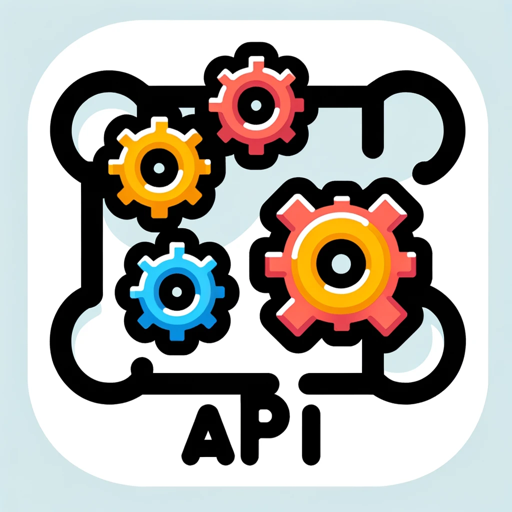PhD Reviewer-AI-powered research analysis tool
AI-Powered Research Insight and Analysis
Related Tools
Load More20.0 / 5 (200 votes)
Introduction to PhD Reviewer
PhD Reviewer is a sophisticated AI-based assistant designed to aid researchers, academics, and students in analyzing and synthesizing academic literature. It focuses on providing comprehensive state-of-the-art documents, which involve critical evaluations, comparative analyses, and synthesis of information from multiple scholarly articles. By leveraging advanced natural language processing capabilities, PhD Reviewer enhances the efficiency and depth of academic reviews. For example, a PhD student working on a literature review for their dissertation can use PhD Reviewer to integrate findings from numerous studies, identify research gaps, and suggest future research directions.

Main Functions of PhD Reviewer
Synthesis from Uploaded Articles
Example
PhD Reviewer can combine information from several articles to provide a unified understanding of a research topic. For instance, if a researcher uploads multiple studies on renewable energy sources, PhD Reviewer will synthesize the methodologies, findings, and conclusions, presenting a cohesive overview.
Scenario
A researcher preparing a grant proposal needs a comprehensive synthesis of recent advancements in solar energy technology. By uploading relevant articles to PhD Reviewer, they receive a detailed synthesis highlighting key trends, innovations, and gaps in the current research.
Comparative Analysis
Example
PhD Reviewer can create tables that compare methods, findings, and the quality of research across various studies. For example, it can compare different machine learning algorithms used in predictive modeling studies.
Scenario
A data scientist is evaluating different machine learning models for predicting disease outbreaks. Using PhD Reviewer, they receive a comparative analysis of various models, including performance metrics, datasets used, and methodological strengths and weaknesses.
Research Gap Identification
Example
PhD Reviewer identifies gaps in the existing literature and suggests potential areas for future research. For instance, it might highlight a lack of longitudinal studies in a particular field.
Scenario
An academic journal editor is looking to commission articles on under-researched areas in cognitive psychology. By utilizing PhD Reviewer, they identify significant research gaps and emerging topics that require further investigation.
Ideal Users of PhD Reviewer
PhD Students
PhD students benefit from using PhD Reviewer for conducting extensive literature reviews, identifying research gaps, and synthesizing large volumes of information for their dissertations. The tool helps streamline the research process, saving time and ensuring comprehensive coverage of their research topic.
Academic Researchers
Academic researchers can utilize PhD Reviewer to keep up-to-date with the latest findings in their field, compare methodologies, and refine their research focus. The tool aids in preparing grant proposals, writing review articles, and conducting meta-analyses, ultimately enhancing the quality and impact of their research.

How to Use PhD Reviewer
Visit aichatonline.org for a free trial without login, also no need for ChatGPT Plus.
Access the PhD Reviewer tool directly through the provided website link. No login or subscription to ChatGPT Plus is required for the free trial.
Upload Your Academic Articles
Gather the academic papers, articles, or research documents you want to analyze. Upload them to the PhD Reviewer for in-depth analysis and synthesis.
Select Analysis Options
Choose from various analysis options such as synthesis, comparative analysis, methodological evaluation, and research gap identification. Customize these options based on your specific needs.
Review Generated Reports
Once the analysis is complete, review the detailed reports generated by PhD Reviewer. These reports will include synthesized information, comparative tables, identified research gaps, and methodological evaluations.
Iterate and Refine
Use the feedback and insights from the reports to refine your research approach, enhance your academic writing, or identify new research directions. Re-upload documents as needed for further analysis.
Try other advanced and practical GPTs
Rust
AI-powered Rust guidance

Ai Swarm Linux
Empower AI with Linux swarms

.GPT NEO
AI-Powered Content & Analysis Tool

Prompt Wizard
AI-powered tool to enhance prompts

Luna
AI-driven emotional support and companionship.

Ask Me Anything
AI-powered answers to any question.

Intrapreneur
AI-powered tool to boost innovation.

API
AI-powered API integration tool

ThorVGPT
AI-powered guide for ThorVG

Project Management Hub
AI-powered project management made simple.

PrimeLoupe
AI-powered tool for Amazon product review analysis

Devil's Advocate GPT
Challenge your ideas with AI-driven opposition.

- Academic Writing
- Literature Review
- Research Analysis
- Gap Identification
- Method Evaluation
PhD Reviewer Q&A
What types of documents can PhD Reviewer analyze?
PhD Reviewer can analyze various academic documents, including journal articles, research papers, theses, and dissertations. It focuses on extracting and synthesizing key information to support advanced research needs.
How does PhD Reviewer identify research gaps?
PhD Reviewer examines the current literature, highlights areas with limited research, and suggests potential topics for further investigation. It cross-references findings from multiple sources to pinpoint these gaps accurately.
Can PhD Reviewer compare methodologies from different studies?
Yes, PhD Reviewer performs comparative analysis of methodologies used in different studies. It evaluates the robustness, validity, and applicability of various research methods to provide comprehensive insights.
Is PhD Reviewer suitable for non-academic research?
While primarily designed for academic research, PhD Reviewer can also be useful for industry research, policy analysis, and other fields requiring detailed literature reviews and methodological evaluations.
How can I ensure the best results from PhD Reviewer?
For optimal results, ensure that you upload high-quality, peer-reviewed articles. Clearly define your analysis objectives and customize the tool's options to align with your specific research questions and needs.